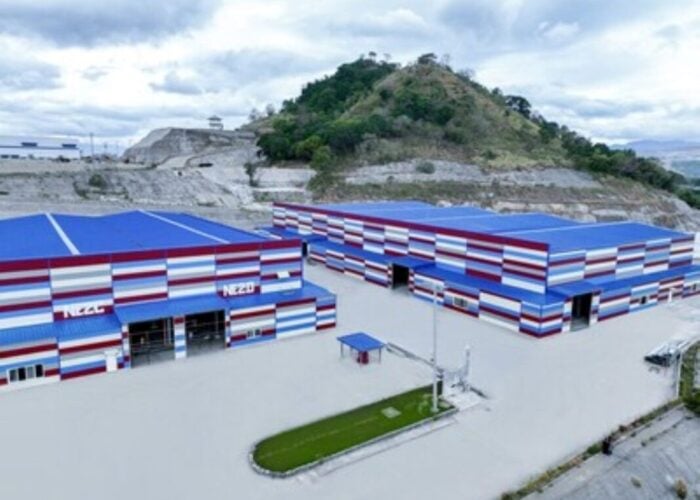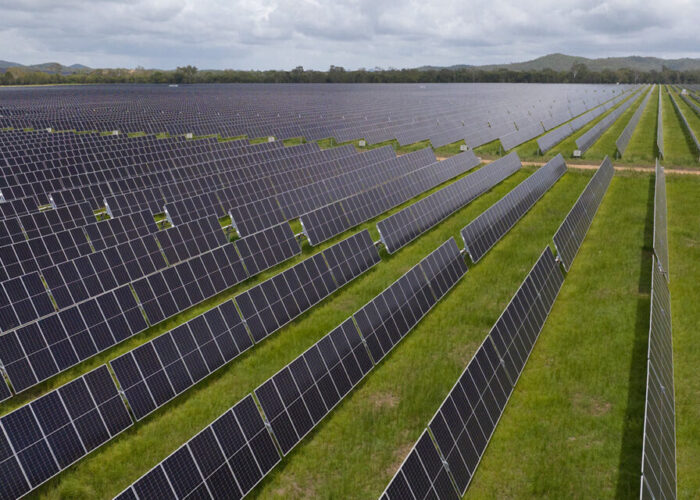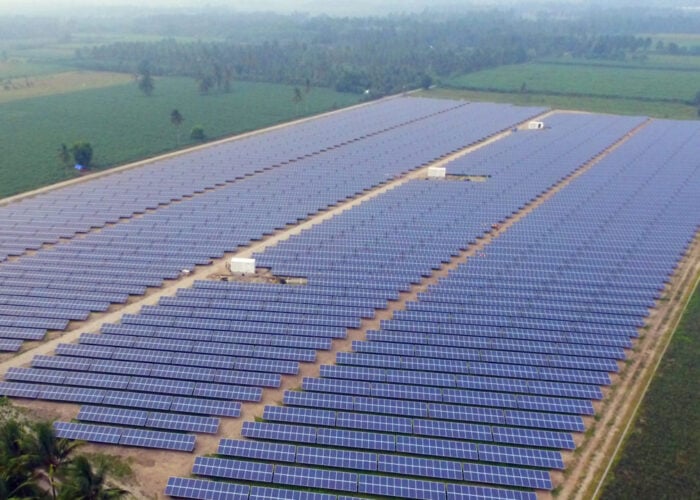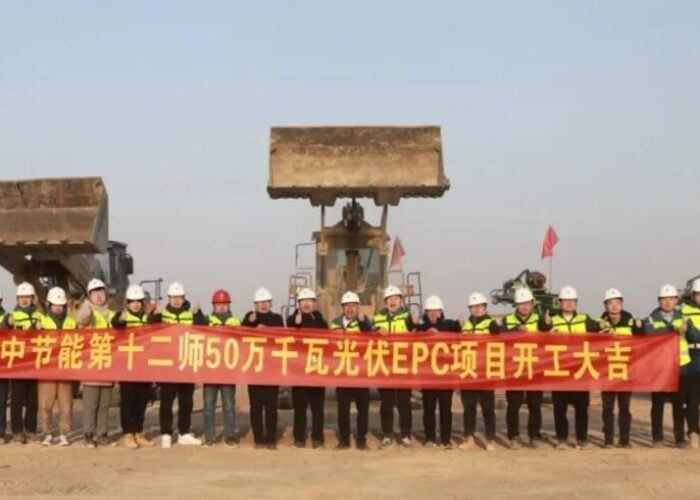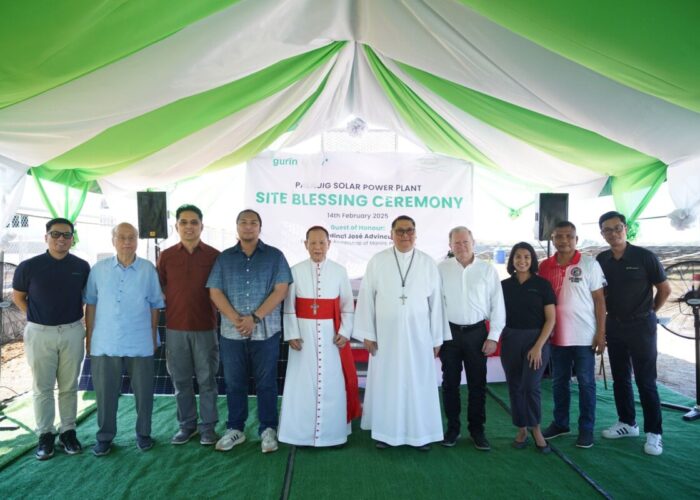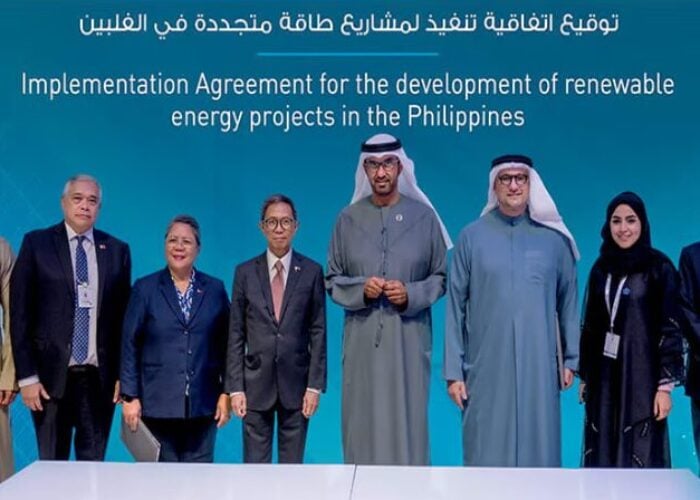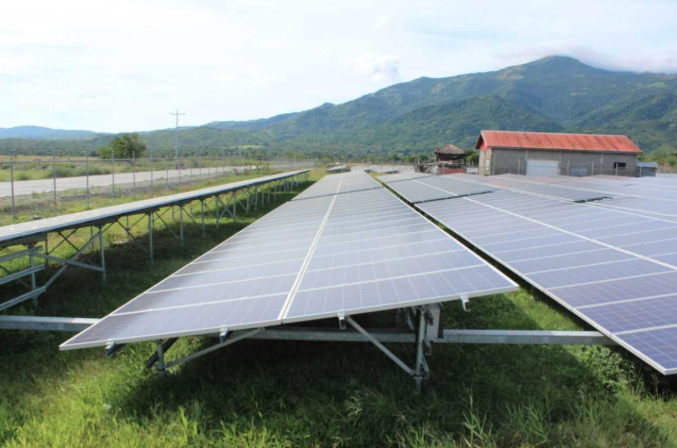
UPDATED: A controversial House Bill granting private Filipino firm Solar Philippines a PV mini-grid and transmission franchise across the Philippines has all but passed through Congress, with only a procedural third step left to confirm the final draft of the Bill.
The House Bill (HB 8179) allows Solar Philippines, operating under the name Solar Para Sa Bayan (SPSB) ‘Solar for the country’, what is described as a non-exclusive franchise offering an alternative energy source from traditional utilities to Filipinos.
Unlock unlimited access for 12 whole months of distinctive global analysis
Photovoltaics International is now included.
- Regular insight and analysis of the industry’s biggest developments
- In-depth interviews with the industry’s leading figures
- Unlimited digital access to the PV Tech Power journal catalogue
- Unlimited digital access to the Photovoltaics International journal catalogue
- Access to more than 1,000 technical papers
- Discounts on Solar Media’s portfolio of events, in-person and virtual
There are three steps in Congress: a first reading through the Committee; a second reading involving a debate on the floor; and a third reading, which is a confirmation of the final draft of the bill. Today the second reading was passed through a vote and the bill now only has to go through a third reading in the next couple of days, where it is possible certain amendments may be introduced, including factors relating to the scope of the franchise.
The House Bill has been at the centre of heated debates both in the media and politicly and has come up against intense opposition from most of the rest of the solar industry.
Among a long list of arguments on both sides, one of the key points is whether the bill would create a monopoly.
Leandro Leviste, founder and CEO of Solar Philippines, who was present at the vote today and confirmed the news to PV Tech, insists that he wants other players to come forward and follow suit, but much of the rest of the industry has called it out as merely replacing one monopoly (the utilities), with another monopoly in the form of a single private solar company.
PV Tech recently visited a solar-storage-diesel micro-grid set up by SPSB in Paluan, a previously heavily underserved area in terms of power supply on the island of Mindoro. The locals had faced frequent brownouts and just 3-8 hours of electricity per day if any, but the new mini-grid is offering 24/7 power at cheaper rates and could be a symbol of things to come to other parts of the country under the new franchise. The economics of rural electrification using microgrids should be considered an investment for the future, akin to how Silicon Valley tech providers plough money into initially loss-leading products and services, Leviste has said of his strategy.
Local solar industry decries ‘railroaded’ bill
The Philippines Solar and Energy Storage Alliance (PSSEA) had proposed amendments to the Bill, opening with this statement: “The goal of providing electricity for all cannot and should not be the sole domain of any one company. Increasing access to clean energy is possible only through the sustained, multi-sectoral efforts where everyone operates fairly and transparently.”
Claire Lee, vice president of PSSEA, told PV Tech that the association had been pushing for a rework of the franchise’s scope so that it focused purely on underserved and unserved areas, rather than across the whole country, but the approved bill reads that SPSB can operate “in areas to be determined by DOE including unserved and underserved areas”.
Lee said that this ambiguity suggests that SPSB will still be able to set up projects anywhere in the country.
PSSEA had also been pushing for safeguards and an obligation on Leviste's part for a nationwide franchise and Lee said that the more crucial amendments proposed have been accepted. For example, Solar Philippines will have to seek certification and permitting from both ERC and DOE for its projects.
Lee added: “We maintain that what we need is a democratization of the power industry, not more barriers to entry. We have existing rules on missionary electrification. What we need are reforms on these existing rules.
“At this point we can only provide amendments, considering that the process of the bill was not transparent. The private sector was never consulted. We still consider this bill as unnecessary, unconstitutional and monopolistic.”
The PSSEA, had previously released the following statement: “We strongly oppose the passage of House Bill (HB) 8179 or the granting to one firm unlimited, monopolistic control of an important sector of our society. It is in conflict with the overarching policy of our nation being a free, open, fair economy. We are at a loss to know why it was even considered.”
In response to claims that the bill was railroaded, Leviste and his team have claimed that HB 8179 went through the longest hearings of any bill to the knowledge of members of the Committee on Legislative Franchises. More than three months had passed and other franchises filed after HB 8179 had already been passed. Solar Philippines also claimed that the House Bill had come under more scrutiny than nearly any other bill in the 17th Congress.
Despite this claim, Paul Pineda, head of the Philippine Rural Electric Cooperatives Association (Philreca) Resource Center, also told PV Tech that the bill was deliberated in just a matter of hours and discussed without any representation from stakeholders like distribution utilities nor other players from the renewable energy sector.
Leviste has also hit back at local electricity co-operatives, who have of course opposed the Bill, by claiming that it is not difficult to offer cheaper prices than members of Philreca because Filipino utilities charge the highest rates in Asia.
Again Pineda disputed this by claiming that SPSB actually charges higher rates than nearby cooperatives. He was citing bills that Philreca has seen from 20 customers of the Paluan micro-grid during a visit to the project and its customers.
SPSB has said that its mini-grid projects in provinces including Mindoro, Palawan, Masbate, and Cagayan have been opposed by utilities, who claim third parties must get permission from them as the franchisees in these areas. It is for this reason that it believes mini-grid franchises are necessary for new providers to offer an effective alternative to existing utilities.
In a statement, SPSB said: “Existing utilities may be best served if, instead of trying to prevent competition, they just focused on lowering costs and improving services, so Filipinos would be satisfied with their electricity, and there would be no need for cheaper, cleaner, more reliable alternatives at all.”
The Department of Energy (DOE) has made a target of providing affordable, reliable electricity for all by 2022.
Another argument from the PV industry is that rural electrification of the Philippines cannot and should not be the preserve of one company. SPSB is already in 12 towns in 9 provinces and supplying power to 200,000 people and it has made a great noise about how it can offer its projects without subsidy. The industry, on the other hand, believes this will stifle competition and therefore also innovation in the sector. Meanwhile, SPSB has highlighted the inefficiencies and poor power supply of the incumbent utilities and also pointed to a distinct lack of penetration of mini and micro-grids into the Philippines, Through its franchise, the company plans to change this while also preventing the institutionalisation of the inefficiencies of electric utilities.
Updated to include comment from PSSEA, Philreca and Solar Philippines (SPSB).

